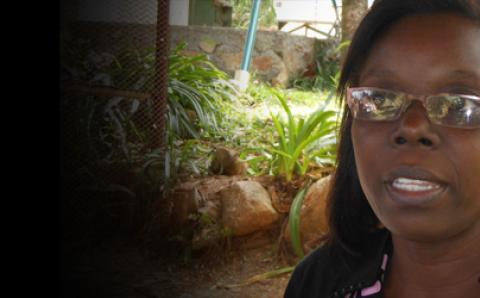In the grand scheme of God’s unfathomable work of creation, what’s a few billion years? Nothing to get uptight about, according to “Creation and Science,” an excellent Christian Reformed Church study report whose recommendations were adopted by Synod 1991. It encourages Reformed believers to take their Bibles and their science books, place them side by side, and explore various scenarios for how and when God got our globe spinning. These all confess that it wasn’t eternal “stuff” roiled by mere chance that originated all things, including us. Our all-knowing, all-powerful, loving God created the whole shebang ex nihilo (out of nothing). The details are insignificant enough that we can engage in some fun discussions over those, as long as we keep it clean.
By “clean,” I mean that “young earthers” and “old earthers” need to be very careful not to start bad-mouthing each other. That unnecessarily breaks “the unity of the Spirit in the bond of peace” (Eph. 4:3), to which our risen Lord calls us. Our “young-earthers” are not flat-earth idiots. And our “old-earthers” are not evolutionistic liberals who carelessly place us on the slippery slope to denying Christ’s physical resurrection. Such scurrilous charges are direct violations of the ninth commandment.
So what does a respectful, useful conversation on this issue look like? We invited two Christian Reformed folks to have at it here in The Banner (“Speaking of Jurassic Ark” and “We Need Not Fear the Dinosaur”). As Christians united by Christ’s Spirit, Scripture, and our creeds and confessions, we can do such things and do them well.
Our culture offers few good models for how to carry on this kind of conversation. Most public discussions these days are acrimonious, take-no-prisoners debates intended to annihilate the other side. That’s not how we ought to speak with each other on non-salvation issues.
Let’s keep things in perspective here. Because Scripture is God-revelation, it concerns itself primarily with telling us the Who and why of creation. Science concerns itself more with the how, where, and when. So let’s be a bit humble about our own interpretation of Scripture, just as we are about our scientific hypotheses. Like science, our biblical interpretation is not God’s Word itself. It is our fallible, human attempt at grasping what is too high, too wide, and too deep for us.
All this to say, when you read these articles, by all means have fun following their evidence and arguments—and I do mean, have fun with it. But more important, note the tone of their conversation. Especially in a day of blistering media attacks and bloggers’ rants, we need to learn to speak the truth in love (Eph. 4:15) in a way that builds up the Body. Du Mez and Buursma model that for us.
So if it’s not a salvation issue, then why discuss this stuff at all? We may cease this conversation only when we have arrived together at a solid, reasonable answer that we can offer to our science students who hit secular universities. When caught unprepared, so many of them needlessly experience a deep crisis of their faith.
We owe them much better than that. So let’s keep this conversation going—with all due respect.
About the Author
Bob De Moor is a retired Christian Reformed pastor living in Edmonton, Alta.









